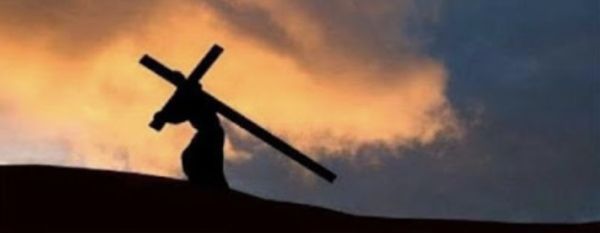(Jn 16:12-15)
«He will receive from Mine and proclaim to you [...] he will receive from Mine and proclaim to you» (vv.14-15).
The teaching imparted by Jesus with his life was not incomplete, but a germ that traced fundamental options, guidelines.
The magisterial insufficiency in the detailed case histories is significant. Christ is not a cast and dead model, but a Motive and Motor.
And God is not a predictor of the future, nor a reassurer - but a vital Presence. Even when in adverse events there seems to be a lack of air.
Although limited in space and time, his story and Word still germinates the guiding lines of an alternative world, empathetic even in the drama of bad times.
The complete Truth of the Lord (including the meaning of his death) is not about quantity - the number of truths, prescriptions: it is in fieri.
'Truth' itself demands to be deepened, intensified, made qualitative, totalising.
The writings of the New Testament attest to the action of the Spirit, who starting from archaic community situations (Mk) increasingly refines and reveals the sense of what "is to come" (v.13).
In the personal and ecclesial sequelae also extra moenia - it is about the possibility of an ever sharper understanding on our part.
We are not repositories of an aptitude for divination - of course - but for discernment [now capable of appreciating even deviations].
We are given a faculty to grasp the genius of time, even in imbalance and uprooting.
This is in relation to the disciples' capacity to correspond to the vocation that welcomes the new: a slow paradoxical glorification; for them too, 'the way of elevation'.
The penetration of the Mystery and the history of salvation, which had its apex and germinal source in Jesus of Nazareth, acquires more and more surprising clarity; new ways of being.
We discover in the Faith that our life can broaden the horizon. It is not carried out in function of God, as in archaic religions, which cage... but the other way around.
Christ speaks not of new truths, but of 'complete truth': specifically concerning the face of Heaven within; the profile of the integral and authentic woman and man; the character of the new society.
One of the ways in which the early Christians experienced the presence of the Holy Spirit was through prophecy, made fruitful by even unpleasant events that incessantly forced them to exodus, to move, to turn their gaze - thus overcoming the fear of growing.
One had to remain... only in individual or ecclesial frankness.
If anyone had to 'isolate' themselves from the common mentality, it was to rediscover their deep roots, to interrupt the artificial behaviour ready to barter values.
Gradually the community brothers experienced the depth and total dimension of the teaching received.
Even persecutions and 'crosses' were not eradicated hastily.
In the right time, crises were transformed into the spelling of love; into opportunities to experience needs and relationships differently - even paradoxically, for genuine change; from within, natural.
In this perspective, every event was always better understood, internalised, assimilated and made one's own as the historical call of the God who reveals himself.
In the events of the early days, all the situations in which the Church will always find itself are revealed.
In this way and in that spirit, the disciples began a journey of understanding the facts of Easter.
The Lord's intimates were discovering step by step that the story of Christ would embrace all the secrets of God.
In short, the first fraternities observed the "extraordinary" things of living following and 'inner guidance'.
By living the Master's teaching in the most varied circumstances [favourable and joyful, or sad and at a loss] He made Himself close in the soul; and He manifested Himself, taking the step of the brethren.
A different Light - no longer neutral, standardised, whatever - animated the lives of the faithful and their coexistence.
They experienced a new Birth, like an unceasing Creation.
From the hearts of the believers in the Son of Man - even those who had previously been maligned - there gushed forth an unprecedented Source of conciliation and harmony of opposites.
A Wisdom of things unknown to the world of empire and other beliefs was emerging.
The Spirit of the Risen One made it possible to understand the critical fruitfulness of the Cross ["the burden": v.12], thus expanding the solutions and orientations of the conventional competitive life.
Of course there were falls, due to natural precariousness, and to the fact that it was not immediate to understand the logic of the Crucified One.
But the Action of the Spirit of "Truth" [God's Faithfulness] enlightened, guided and stimulated them to interpret the Word of the Lord more deeply: not a storehouse of crystallised statements.The children discovered that that Call was living, inexhaustible in its meanings and in the possibility of understanding things.
Truth about the Eternal and humanity, pregnant with existential implications.
Those reborn of water and the Spirit began to perceive it as a force of events, a real and overwhelming power.
His intelligence was enriched in history, through assembly events, experiences, dialogues, reflections.
The Spirit of the wounded and Living Christ internalised that Call that renewed women and men, and their relationships.
People who did not even have self-esteem were being revived. The profiteer became righteous, the doubter more secure; the unhappy person began to hope again.
All in mutual help realised that they could live happily.
The assistance of the total and mystical divine Spirit, even today, guides the access and fullness of facets of the Truth; and is a stimulus to an innovative, democratic, multifaceted, personal understanding.
Let us banish insecurity.
We can still be in the sharpest, most energetic and contemplative frankness; in a faithfulness of integral reading-interpretation of the Gospels that eschews all accommodation (vv.14-15).












